ACT I
The soldier Wozzeck is shaving the Captain. The officer urges him to work more slowly, then tells him that he is a good man but lacks morality because he has an illegitimate child. Wozzeck replies that virtue is a luxury not meant for the poor.
Wozzeck and a fellow soldier, Andres, are cutting firewood in the fields. Wozzeck is frightened by visions: he hears noises and imagines the sinking sun as a fire setting the earth aflame. Then suddenly all is quiet.
Marie, the mother of Wozzeck’s child, and her neighbor Margret watch a military band pass by outside their window. Marie admires the handsome Drum Major and Margret mocks her. Alone with her young son, Marie sings him a lullaby. Wozzeck arrives and tells her about his visions, which he sees as an omen of evil things to come. Marie tries to comfort him, but he rushes off to the barracks without looking at his son. Overwhelmed by her own fears, Marie runs out of the room, leaving the child.
Wozzeck visits the Doctor, who pays him for use in his pseudo-scientific research. Full of self-delusion about making a grand scientific discovery, the Doctor asks Wozzeck about his diet. Wozzeck again brings up his visions, which the doctor dismisses as mere imagination.
On the street before her door, the Drum Major makes advances toward Marie.
She resists at first, then gives in to him.
ACT II
Marie is admiring the earrings the Drum Major has given her. When Wozzeck enters, she tries to hide them, then claims she found them in the street. Wozzeck is suspicious. He gives her the money he has earned and leaves. Marie is overwhelmed by remorse.
The Captain and the Doctor meet in the street and talk morbidly of sickness and death. When Wozzeck passes by, they taunt him with allusions to Marie’s infidelity. Shocked, Wozzeck asks them not to make fun of the one thing in the world that is his. Then he rushes off.
Wozzeck confronts Marie with his suspicions and tries to force her to confess. He
is about to hit her but she remains defiant, telling him that she’d rather have a knife in her belly than his hand on her.
Two drunken apprentices amuse the crowd in a beer garden. Wozzeck enters and sees Marie and the Drum Major on the dance floor. A fool approaches Wozzeck and tells him he smells blood. Wozzeck has a vision of people waltzing while covered with blood.
The same evening in the barracks, Wozzeck wakes to nightmarish memories of what happened in the beer garden. The Drum Major enters, drunk, and boasts about his conquest. The two men fight and Wozzeck is knocked down.
ACT III
Alone with her child, Marie reads from the Bible, first about the adulteress who was forgiven, then about Mary Magdalene. She begs God for mercy.
Marie and Wozzeck are walking together near a pond. Marie wants to hurry back to town, but Wozzeck makes her sit with him. He kisses her and makes ironic remarks about her fidelity. When she attempts to escape, he draws a knife and kills her.
Wozzeck is drinking in a tavern, shouting wildly, and dancing with Margret. When she notices blood on his arm, he is unable to explain where it has come from and rushes out.
At the pond, Wozzeck searches for the knife and throws it into the water. Suddenly he imagines that the moon will reveal his crime. He wades farther into the water to hide the knife in a safer place and to wash the blood off his hands. The Doctor and Captain, passing by, hear him drown.
Neighbor children playing in the street tell Marie’s son that his mother is dead. He does not understand and keeps singing and playing.
Act 1
Scene 1 (Suite)
Wozzeck is shaving the Captain, who lectures him on the qualities of a "decent man" and taunts him for living an immoral life. Wozzeck slavishly replies, "Jawohl, Herr Hauptmann" ("Yes sir, Captain") repeatedly to the Captain's abuse. But when the Captain scorns Wozzeck for having a child "without the blessing of the Church", Wozzeck protests that it is difficult to be virtuous when one is poor, and entreats the Captain to remember the lesson from the gospel, "Lasset die Kleinen zu mir kommen!" ("Suffer the little children to come unto me," Mark 10:14). The Captain is confounded by Wozzeck's theological knowledge and anxiously squeaks, "What do you mean? And what sort of curious answer is that? You make me quite confused!" Wozzeck continues the discussion by positing that it would be easy to be moral if he were wealthy and that, if the poor ever "got to Heaven, we'd all have to manufacture thunder!" The flustered Captain, unable to comprehend Wozzeck, finally concedes that he is "a decent man, only you think too much!" The Captain concludes the discussion, saying it has "quite fatigued" him and again chides Wozzeck to walk slowly before finally exiting.
Scene 2 (Rhapsody and Hunting Song)
Wozzeck and Andres are cutting sticks as the sun is setting. Wozzeck has frightening visions and Andres tries unsuccessfully to calm him.
Scene 3 (March and Lullaby)
A military parade passes by outside Marie's room. Margret taunts Marie for flirting with the soldiers. Marie shuts the window and sings a lullaby to her son. Wozzeck then comes by and tells Marie of the terrible visions he has had, promptly leaving without seeing their son, much to Marie's dismay. She laments being poor.
Scene 4 (Passacaglia)
The Doctor scolds Wozzeck for not following his instructions regarding diet and behavior. But when the Doctor hears of Wozzeck's mental aberrations, he is delighted and congratulates himself on the success of his experiment.
Scene 5 (Rondo)
Marie admires the Drum Major outside her room. He makes advances on her, which she first rejects but then accepts after a short struggle.
Act 2
Scene 1 (Sonata-Allegro)
Marie is telling her child to go to sleep while admiring earrings the Drum Major gave her. She is startled when Wozzeck arrives. He asks where she got the earrings, and she says she found them. Though not convinced, Wozzeck gives her some money and leaves. Marie chastises herself for her behavior.
Scene 2 (Fantasia and Fugue on 3 Themes)
The Doctor rushes by the Captain in the street, who urges him to slow down. The Doctor then proceeds to scare the Captain by speculating about what afflictions he may have. When Wozzeck comes by, they insinuate that Marie is being unfaithful to him.
Scene 3 (Largo)
Wozzeck confronts Marie, who does not deny his suspicions. Enraged, Wozzeck is about to hit her when she stops him, saying even her father never dared lay a hand on her. Her statement "better a knife in my belly than your hands on me" plants in Wozzeck's mind the idea for his revenge.
Scene 4 (Scherzo)
Among a crowd, Wozzeck sees Marie dancing with the Drum Major. After a brief hunter's chorus, Andres asks Wozzeck why he is sitting by himself. An Apprentice delivers a drunken sermon, then an Idiot approaches Wozzeck and cries out that the scene is "Lustig, lustig...aber es riecht ...Ich riech, ich riech Blut!" ("joyful, joyful, but it reeks...I smell, I smell blood").
Scene 5 (Rondo)
In the barracks at night, Wozzeck, unable to sleep, is keeping Andres awake. The Drum Major comes in, intoxicated, and rouses Wozzeck out of bed to fight with him.
Act 3
Scene 1 (Invention on a Theme)
In her room at night, Marie reads to herself from the Bible. She cries out that she wants forgiveness.
Scene 2 (Invention on a Single Note (B))
Wozzeck and Marie are walking in the woods by a pond. Marie is anxious to leave, but Wozzeck restrains her. As a blood-red moon rises, Wozzeck says that if he can't have Marie, no one else can, and stabs her.
Scene 3 (Invention on a Rhythm)
People are dancing in a tavern. Wozzeck enters, and upon seeing Margret, dances with her and pulls her onto his lap. He insults her, and then asks her to sing him a song. She sings, but then notices blood on his hand and elbow; everyone begins shouting at him, and Wozzeck, agitated and obsessed with the blood, rushes out of the tavern.
Scene 4 (Invention on a Hexachord)
Having returned to the murder scene, Wozzeck becomes obsessed with the thought that the knife he killed Marie with will incriminate him, and throws it into the pond. When the blood-red moon appears again, Wozzeck, fearing that he has not thrown the knife far enough from shore and also wanting to wash away the blood staining his clothing and hands, wades into the pond and drowns. The Captain and the Doctor, passing by, hear Wozzeck moaning and rush off in fright.
Interlude (Invention on a Key (D minor))
This interlude leads to the finale.
Scene 5 (Invention on an Eighth-Note moto perpetuo, quasi toccata)
The next morning, children are playing in the sunshine. The news spreads that Marie's body has been found, and they all run off to see, except for Marie's son, who after an oblivious moment, follows after the others.


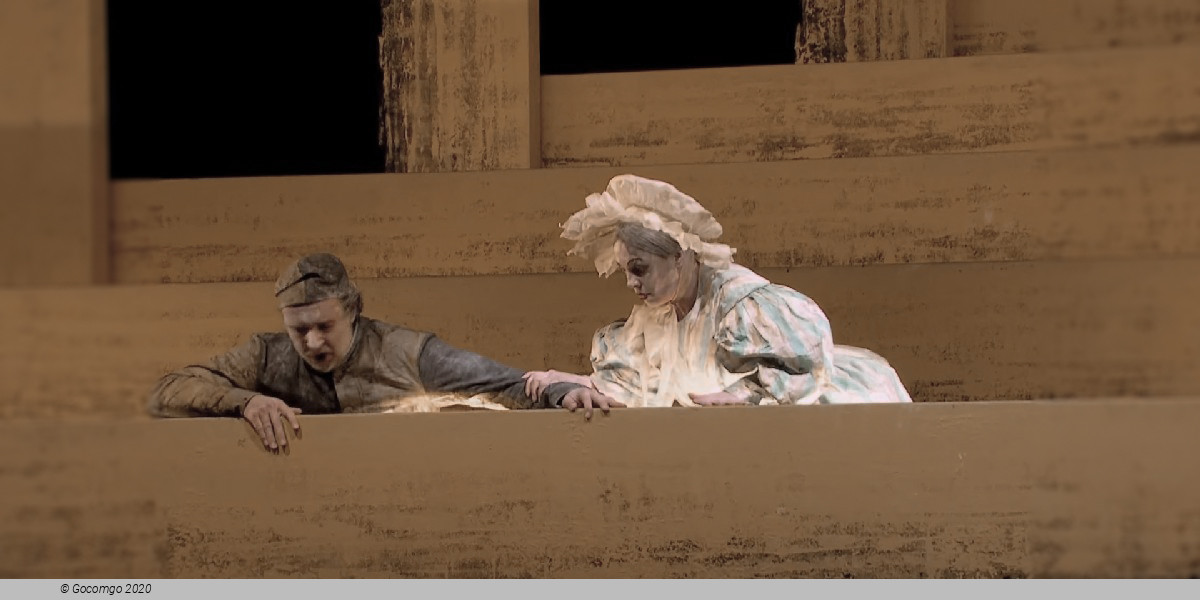
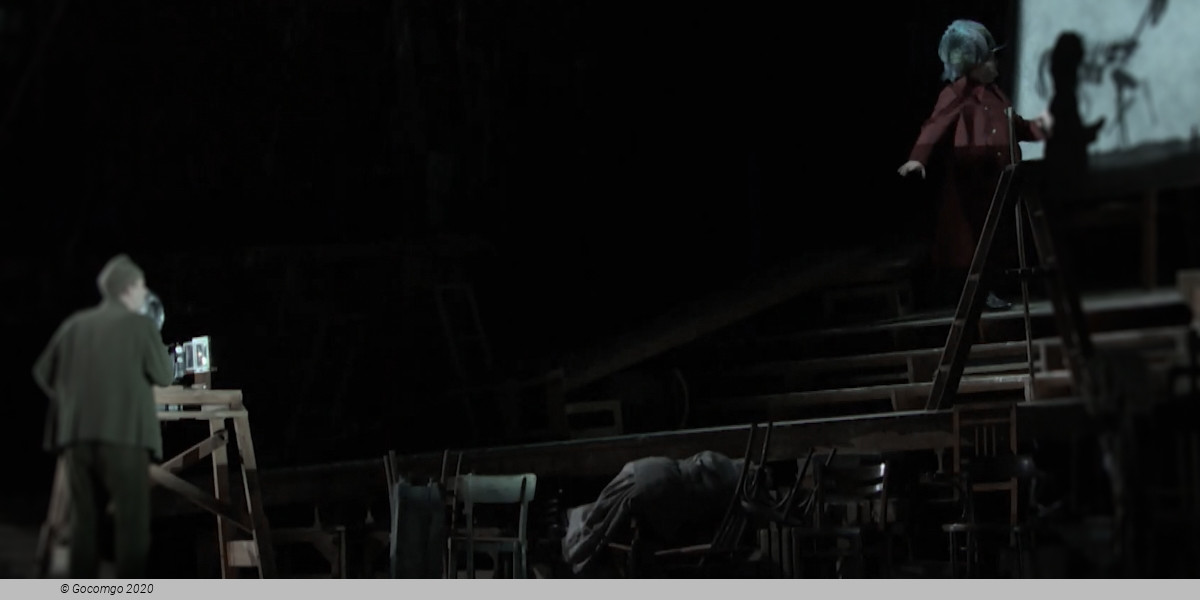
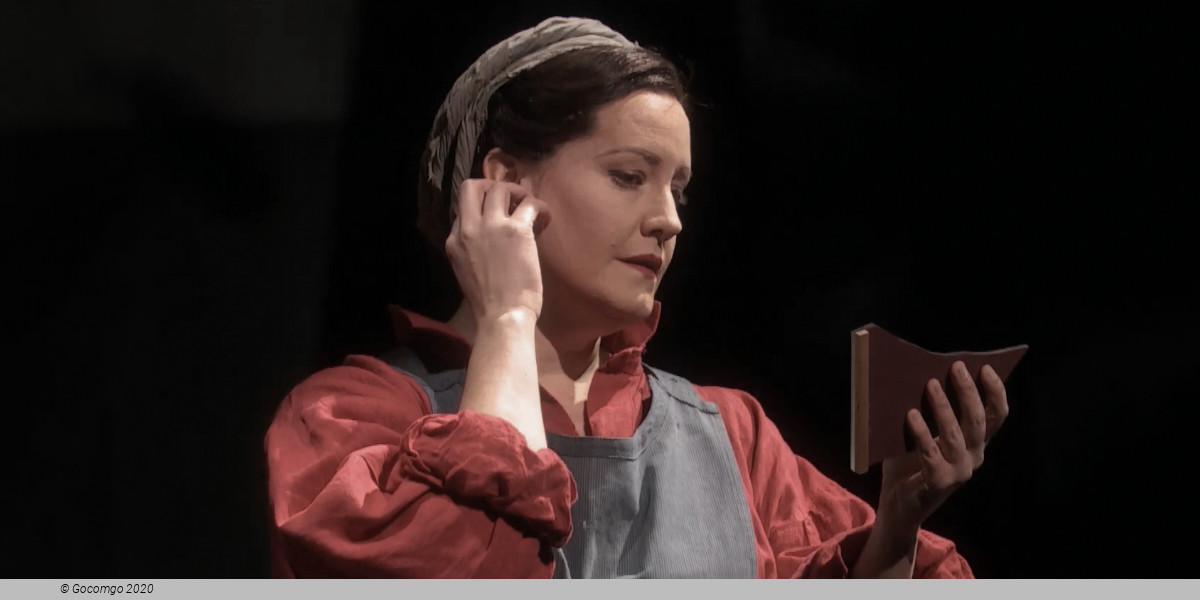
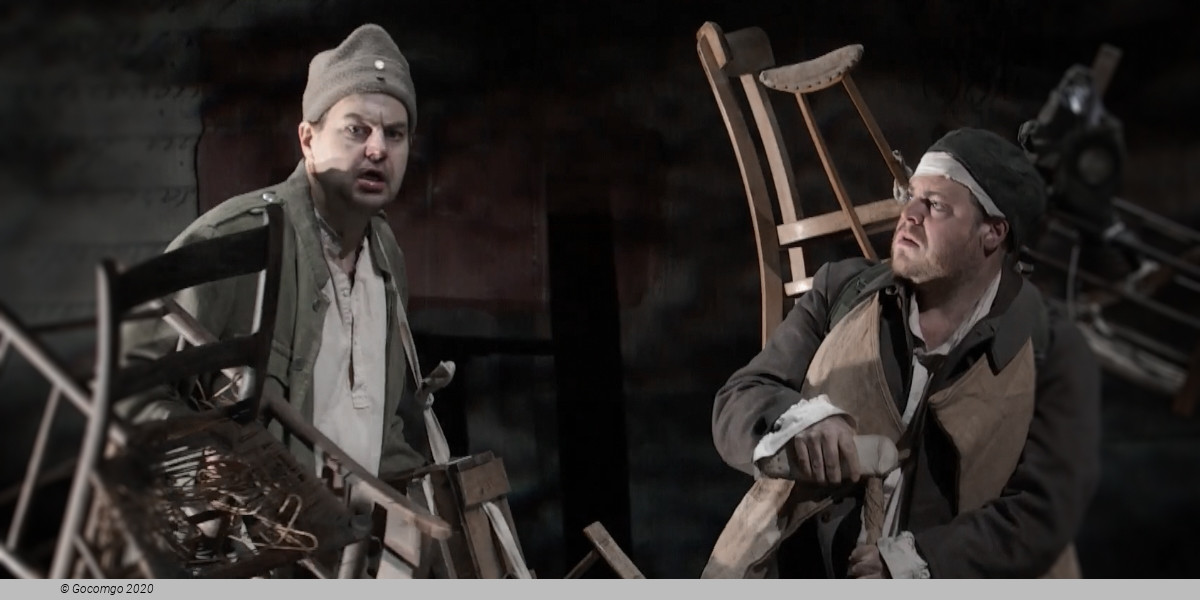
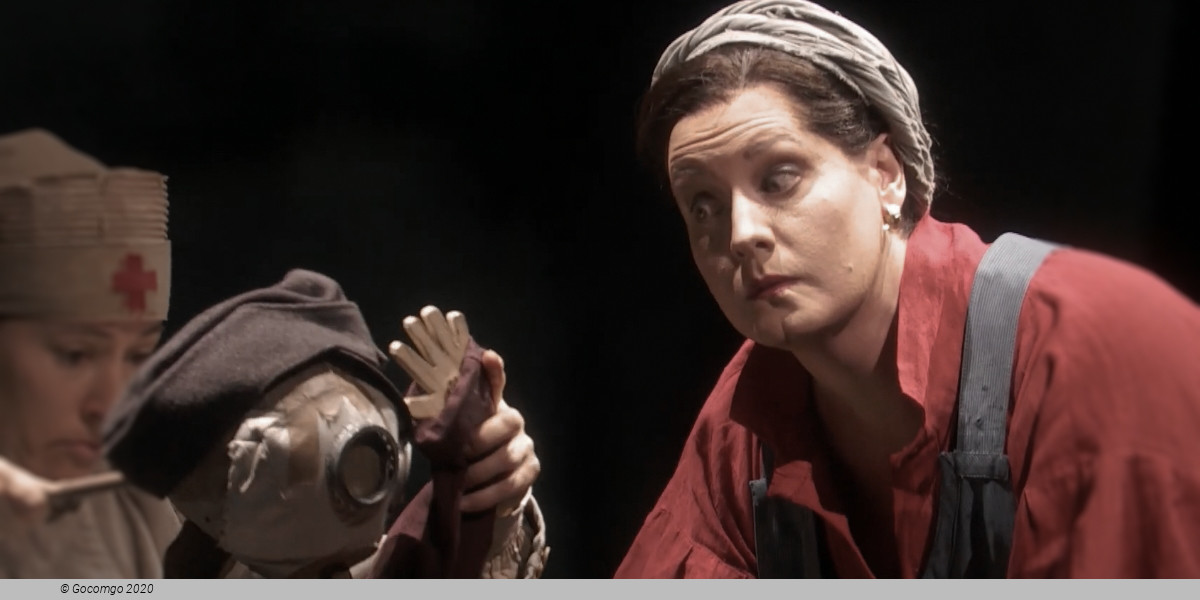
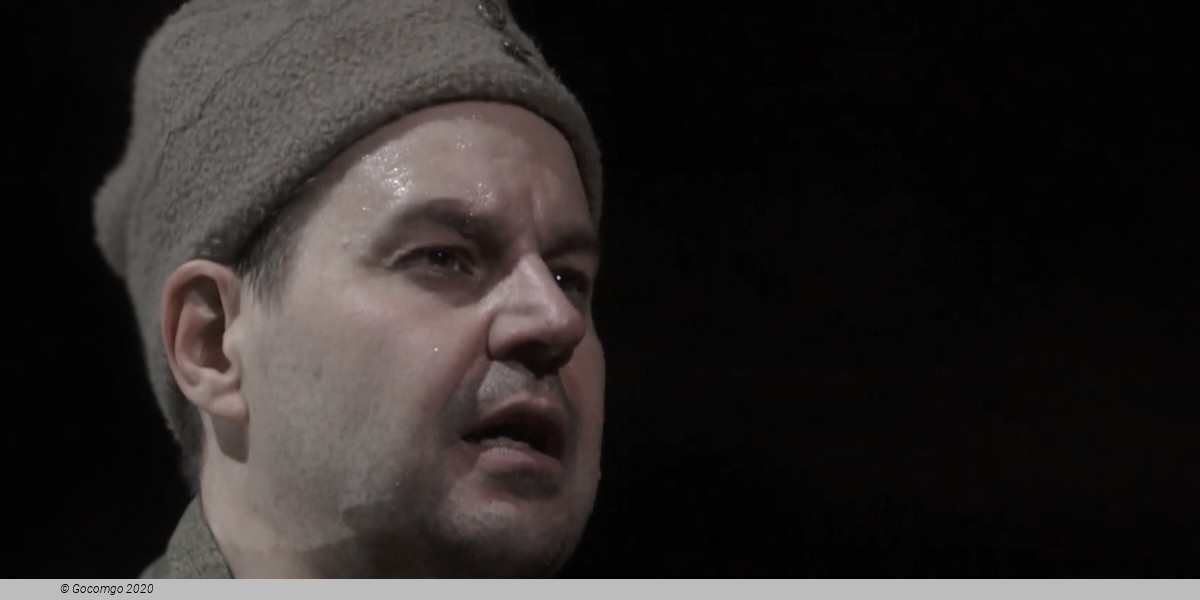
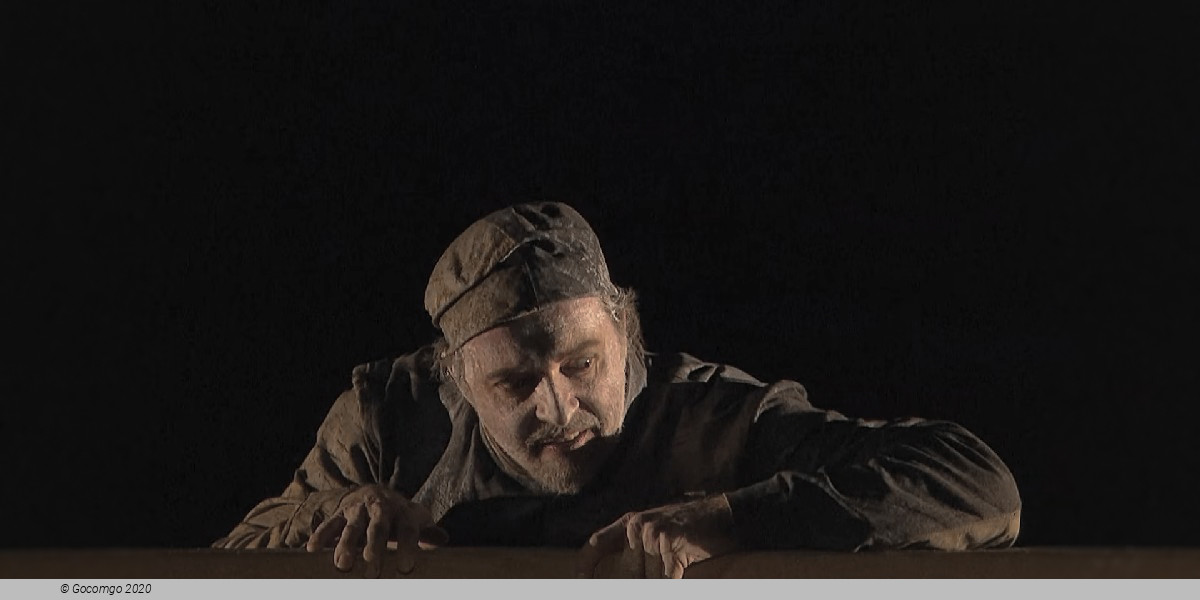
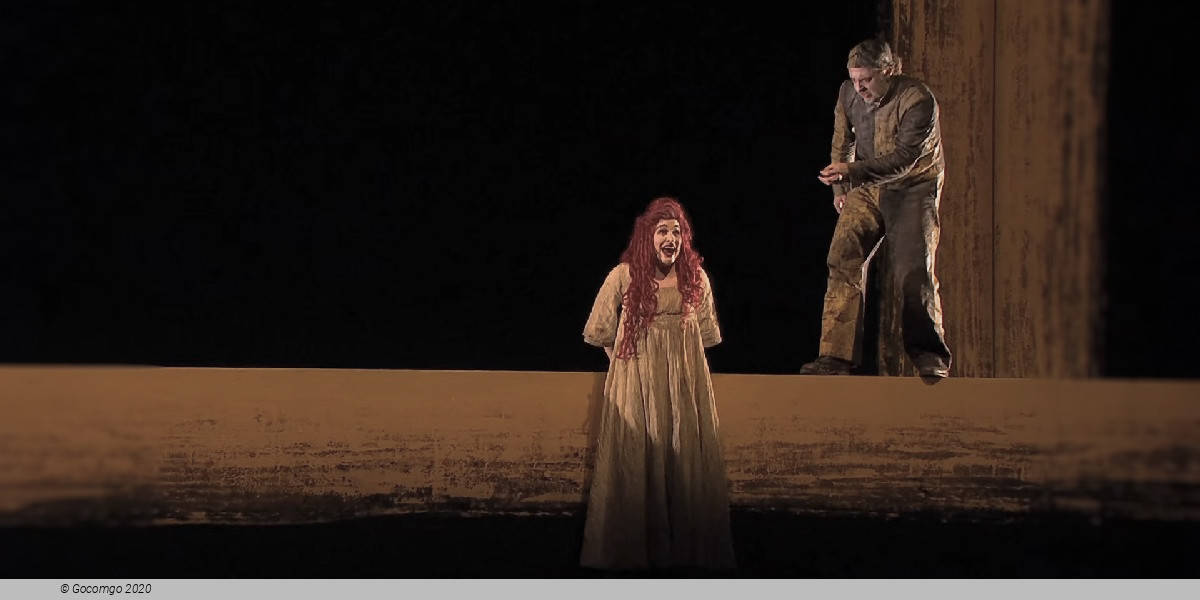
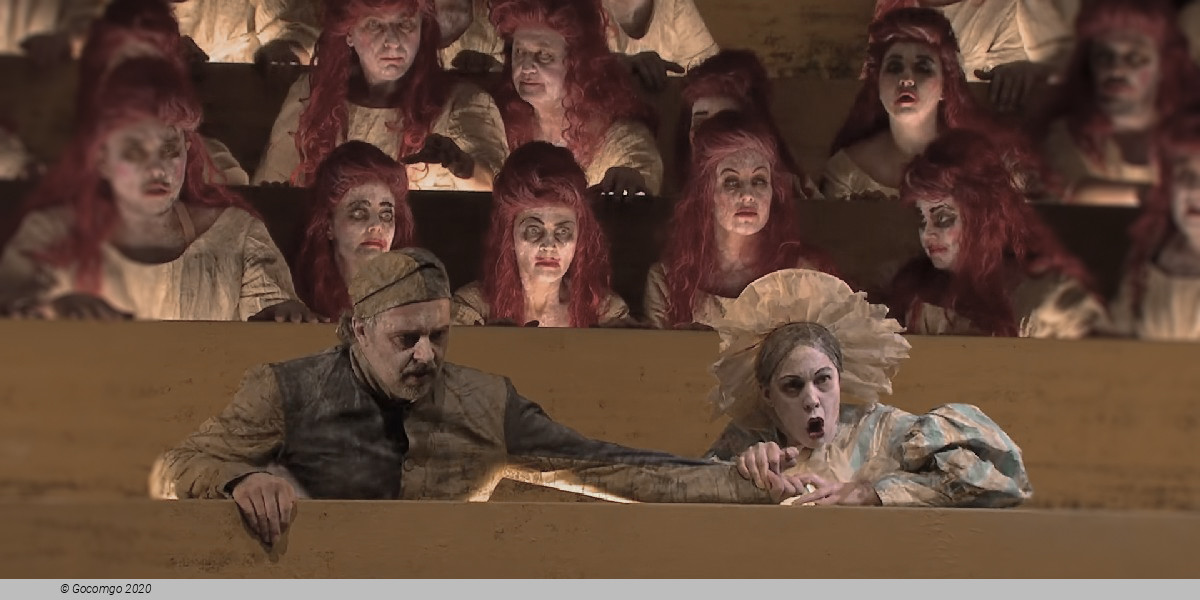
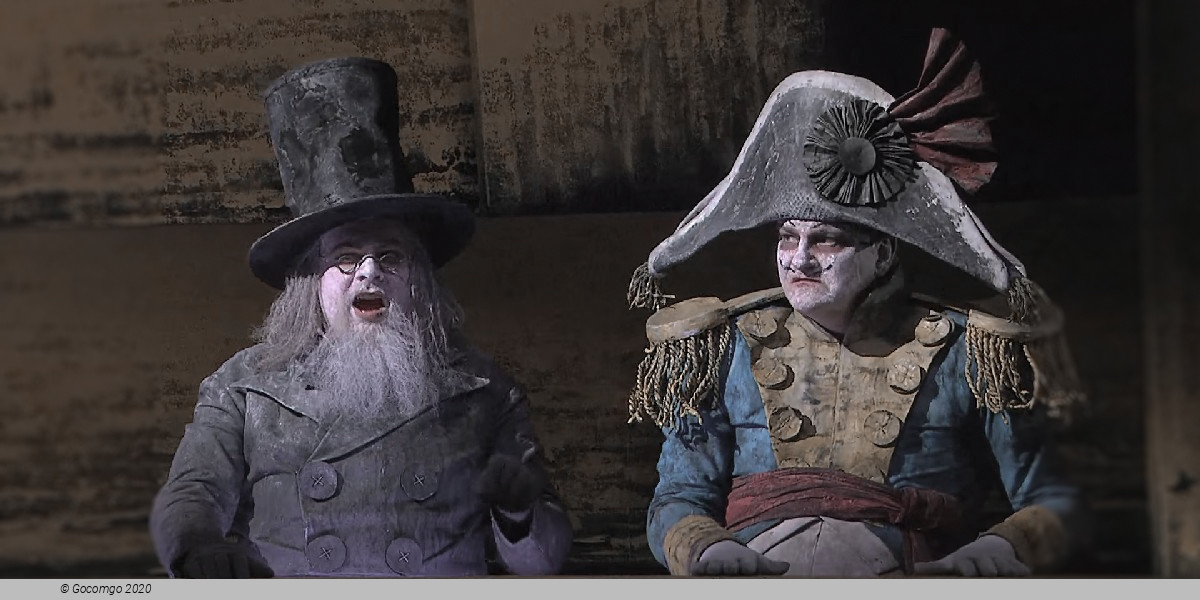
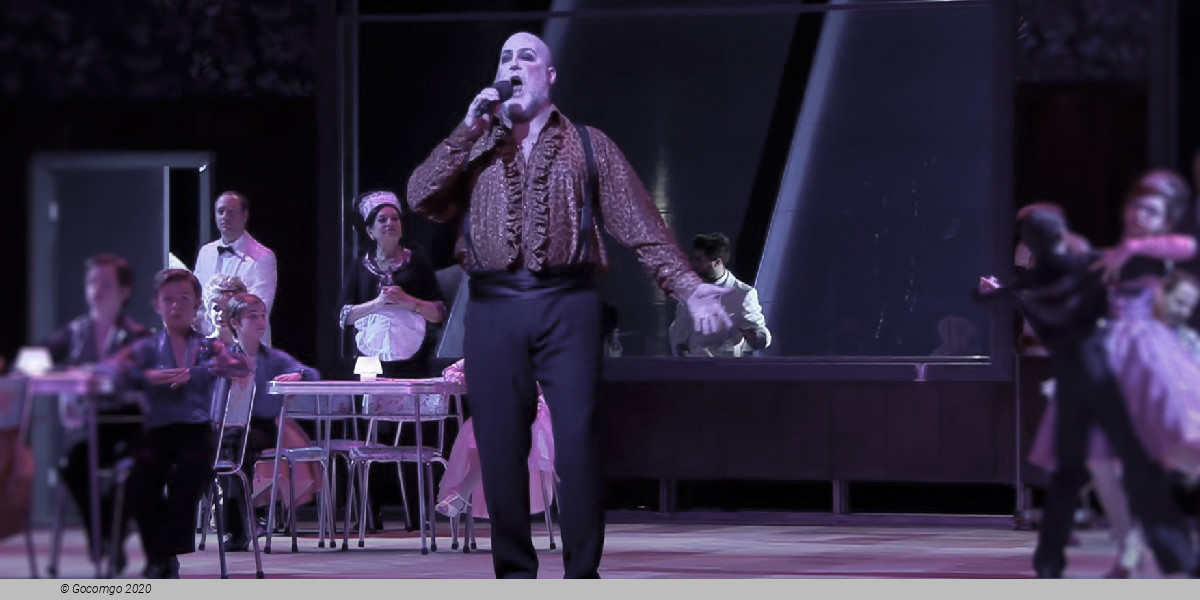
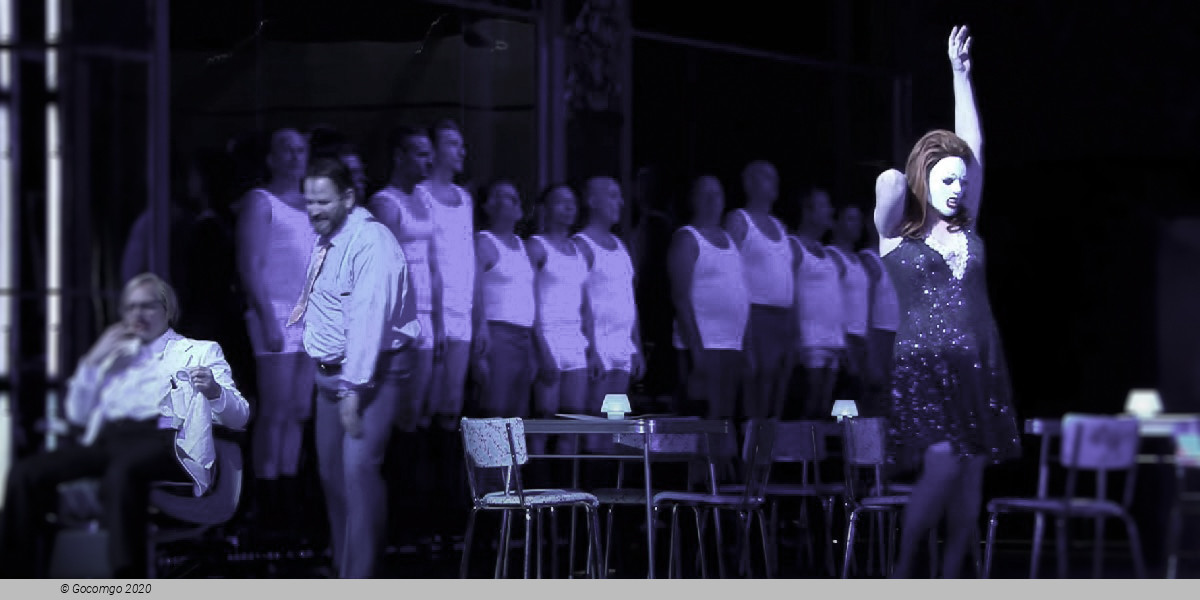
 30 Lincoln Center
30 Lincoln Center